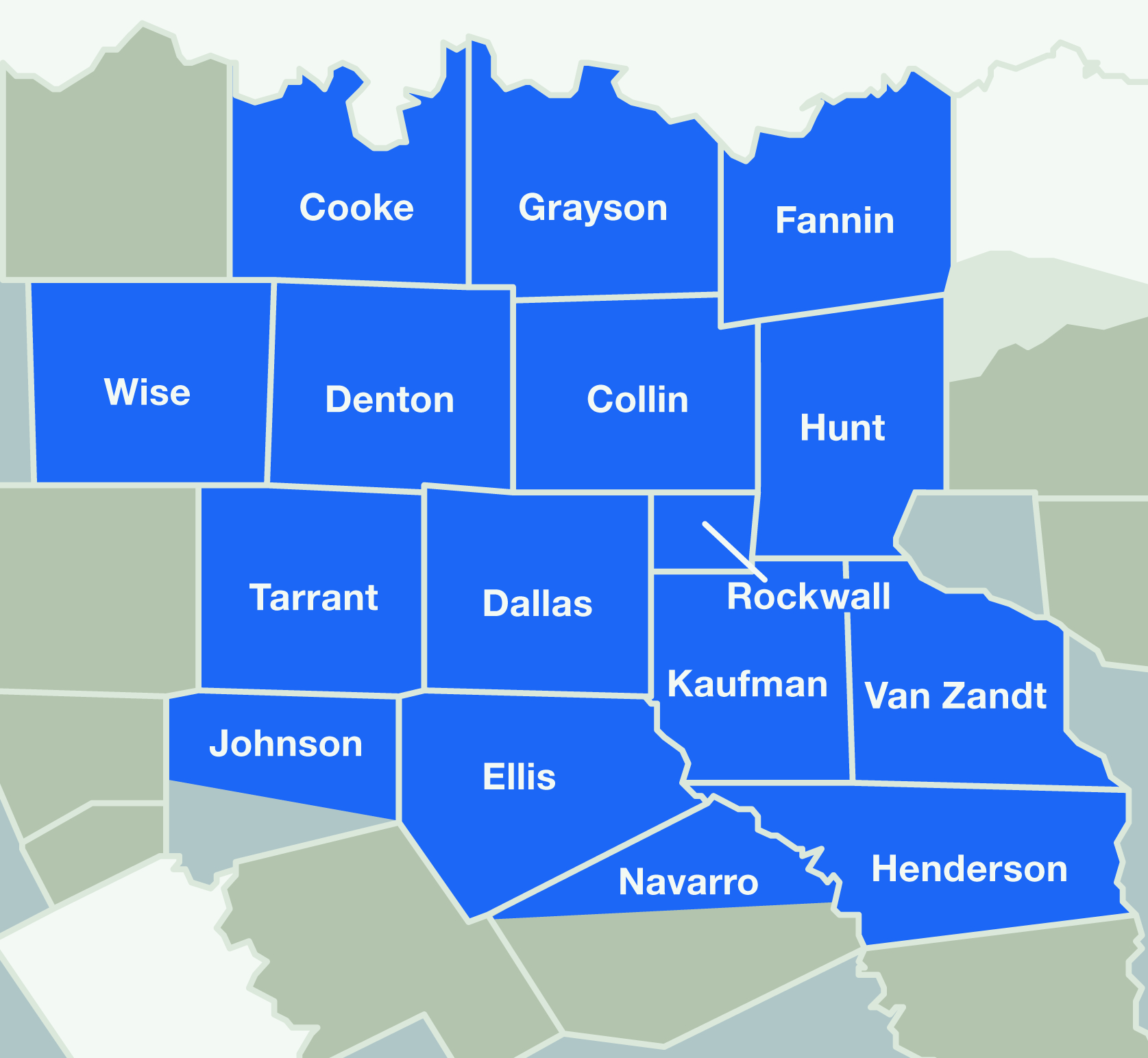Get PAID After a Wrongful Death Accident
The People's WarriorLet us Fight For Your Financial Rights After a Wrongful Death Accident – Learn More Below

Dallas Wrongful Death Lawyers
Losing a loved one is an unimaginable tragedy, and when that loss is due to someone else’s negligence, the emotional and financial toll can be overwhelming. In Dallas, TX, wrongful death claims are a legal avenue for families seeking justice and compensation. Engaging a skilled wrongful death lawyer can be crucial in navigating this complex process. Here’s a comprehensive guide on wrongful death claims in Dallas, the challenges victims face, and the benefits of hiring a specialized attorney.
Understanding Wrongful Death in Dallas, TX
Wrongful death occurs when an individual loses their life due to the negligence or misconduct of another party. In Texas, the law allows certain family members to file a wrongful death claim to seek compensation for their loss. This includes the deceased’s spouse, children, and parents. For more detailed information on Texas wrongful death statutes, you can refer to Aldous Law.
Understanding wrongful death in Dallas, TX, involves comprehending the legal framework that governs these claims and recognizing the rights of the bereaved family members. Wrongful death claims are a critical legal recourse for families who have lost a loved one due to the negligent or intentional actions of another party. Here’s a detailed exploration of wrongful death in Dallas, TX:
Definition of Wrongful Death
Wrongful death is a legal term that refers to a situation where an individual’s death is caused by the wrongful act, neglect, carelessness, unskillfulness, or default of another person or entity. This can occur in various scenarios, including car accidents, medical malpractice, workplace accidents, or defective products.
Legal Framework in Texas
In Texas, wrongful death claims are governed by the Texas Civil Practice and Remedies Code, specifically Chapter 71. This statute outlines who can file a claim, the types of damages that can be sought, and the time limits for filing.
Eligible Claimants
Under Texas law, the following family members are eligible to file a wrongful death claim:
- Spouse: The surviving spouse of the deceased can file a claim for the loss of companionship, emotional support, and financial contributions.
- Children: Both minor and adult children of the deceased can seek compensation for the loss of parental guidance, support, and love.
- Parents: The parents of the deceased can file a claim for the emotional and financial impact of losing a child.
It is important to note that siblings and other relatives are not eligible to file a wrongful death claim in Texas.
Types of Damages
The damages in a wrongful death claim are intended to compensate the family for both economic and non-economic losses. These may include:
- Economic Damages: These cover quantifiable financial losses such as medical expenses incurred before death, funeral and burial costs, and the loss of the deceased’s future earnings and benefits.
- Non-Economic Damages: These compensate for intangible losses such as pain and suffering, loss of companionship, emotional distress, and loss of consortium.
- Punitive Damages: In cases where the defendant’s actions were particularly egregious or reckless, punitive damages may be awarded to punish the wrongdoer and deter similar conduct in the future.
Statute of Limitations
In Texas, the statute of limitations for filing a wrongful death claim is generally two years from the date of the deceased’s death. However, there are exceptions and specific circumstances that may alter this timeframe, so it is crucial to consult with a legal professional to ensure compliance with all deadlines.
Importance of Legal Representation
Navigating a wrongful death claim can be complex and emotionally challenging. Engaging an experienced wrongful death lawyer in Dallas is essential for several reasons:
- Legal Expertise: A lawyer can provide expert guidance on the legal process, ensuring that all necessary documentation is filed correctly and on time.
- Evidence Gathering: Attorneys have the resources to conduct thorough investigations, gather evidence, and build a strong case to prove liability.
- Negotiation Skills: Lawyers can effectively negotiate with insurance companies and opposing parties to secure a fair settlement that reflects the true value of the family’s loss.
Conclusion
Understanding wrongful death in Dallas, TX, involves recognizing the legal rights of family members and the complexities of pursuing a claim. By seeking the assistance of a knowledgeable wrongful death attorney, families can navigate the legal process with confidence, ensuring that they receive the compensation and justice they deserve. For more detailed information on Texas wrongful death statutes, you can refer to Aldous Law.
Challenges Faced by Wrongful Death Victims with Insurance Companies
Insurance companies are often involved in wrongful death claims, and they may attempt to minimize the payout to the bereaved family. Victims face several challenges, including:
- Complex Negotiations: Insurance companies have experienced adjusters who aim to protect their bottom line. They may offer settlements that are far below what the family deserves.
- Delay Tactics: Insurers might delay the process, hoping the family will accept a lower offer out of desperation.
- Disputing Liability: Insurance companies may dispute the liability of their policyholder, complicating the claim process.
For insights into how insurance companies handle wrongful death claims, visit Amaro Law Firm.
When dealing with wrongful death claims, families often find themselves in a challenging battle with insurance companies. These companies, driven by profit motives, may employ various tactics to minimize the compensation paid out to grieving families. Understanding these challenges is crucial for families seeking justice and fair compensation. Here’s a detailed look at the obstacles wrongful death victims face when dealing with insurance companies:
Complex Negotiations
Insurance companies are equipped with experienced adjusters and legal teams whose primary goal is to protect the company’s financial interests. These professionals are skilled negotiators who often employ strategies to reduce the settlement amount. Some of the complexities involved in negotiations include:
- Low Initial Offers: Insurance adjusters may present an initial settlement offer that is significantly lower than the claim’s actual value. This tactic is designed to test the family’s willingness to settle quickly, often at a financial disadvantage.
- Technical Jargon: Adjusters may use complex legal and insurance terminology to confuse or intimidate claimants, making it difficult for families to understand their rights and the true value of their claim.
- Pressure Tactics: Families may feel pressured to accept a quick settlement due to financial strain or emotional exhaustion, especially if they are unaware of their legal rights or the full extent of their claim’s value.
Delay Tactics
Insurance companies may deliberately delay the claims process, hoping that the bereaved family will become frustrated and accept a lower settlement offer. Common delay tactics include:
- Prolonged Investigations: Insurers may claim that they need more time to investigate the circumstances of the death, even when liability is clear. This can lead to unnecessary delays in processing the claim.
- Requesting Excessive Documentation: Adjusters might repeatedly ask for additional documentation or information, creating administrative hurdles that slow down the process.
- Stalling Communication: Insurers may take a long time to respond to inquiries or provide updates, leaving families in a state of uncertainty and increasing their desperation for resolution.
Disputing Liability
One of the most significant challenges in wrongful death claims is when insurance companies dispute the liability of their policyholder. This can complicate the claim process in several ways:
- Blaming the Victim: Insurers may attempt to shift blame onto the deceased, arguing that their actions contributed to the accident or incident, thereby reducing the insurer’s liability.
- Questioning Evidence: Insurance companies may challenge the validity or relevance of evidence presented by the family, such as witness statements, expert testimonies, or accident reports.
- Involving Multiple Parties: In cases where multiple parties are involved, insurers may argue over who is responsible for the death, further complicating the claim and delaying compensation.
Navigating These Challenges
To effectively navigate these challenges, families should consider the following strategies:
- Seek Legal Representation: Engaging an experienced wrongful death attorney can level the playing field. Lawyers can handle negotiations, counter delay tactics, and build a strong case to establish liability.
- Document Everything: Keeping detailed records of all communications, documents, and evidence related to the claim can help counteract insurance company tactics.
- Stay Informed: Understanding the legal process and the rights of wrongful death claimants can empower families to make informed decisions and resist pressure from insurers.
For more insights into how insurance companies handle wrongful death claims, you can visit Amaro Law Firm. By being aware of these challenges and taking proactive steps, families can better navigate the complexities of wrongful death claims and seek the justice and compensation they deserve.
Valuing a Wrongful Death Claim
Determining the value of a wrongful death claim involves several factors:
- Economic Damages: These include medical expenses incurred before death, funeral costs, and loss of the deceased’s future earnings.
- Non-Economic Damages: Compensation for pain and suffering, loss of companionship, and emotional distress.
- Punitive Damages: In cases of gross negligence, punitive damages may be awarded to punish the wrongdoer.
For a deeper understanding of how wrongful death claims are valued, you can explore Nolo’s Guide.
Valuing a wrongful death claim is a complex process that requires careful consideration of various factors to ensure that the bereaved family receives fair compensation for their loss. The value of a wrongful death claim is determined by assessing both economic and non-economic damages, and in some cases, punitive damages. Here’s a detailed exploration of these components:
Economic Damages
Economic damages are quantifiable financial losses that the family incurs as a result of the wrongful death. These damages are typically easier to calculate and include:
- Medical Expenses: This covers all medical costs incurred from the time of the injury or illness leading to death until the deceased’s passing. It includes hospital bills, medication, surgeries, and any other related medical treatments.
- Funeral and Burial Costs: The expenses associated with the funeral and burial or cremation of the deceased are included in the claim. This can cover costs such as the casket, burial plot, memorial service, and other related expenses.
- Loss of Future Earnings: This is a significant component of economic damages and involves calculating the income the deceased would have earned had they lived. Factors considered include the deceased’s age, occupation, salary, potential career advancements, and life expectancy. This calculation may also include the loss of benefits such as health insurance, pension plans, and retirement savings.
Non-Economic Damages
Non-economic damages are more subjective and compensate the family for intangible losses that do not have a direct monetary value. These include:
- Pain and Suffering: Compensation for the physical pain and emotional suffering experienced by the deceased before their death, as well as the emotional distress suffered by the family.
- Loss of Companionship and Consortium: This covers the loss of love, companionship, comfort, and guidance that the deceased provided to their family members. It acknowledges the emotional void left by the deceased’s absence.
- Emotional Distress: The psychological impact on the family members, including grief, anxiety, and depression, is considered under this category.
Punitive Damages
Punitive damages are not awarded in every wrongful death case. They are intended to punish the wrongdoer for particularly egregious or reckless behavior and to deter similar conduct in the future. Factors influencing the award of punitive damages include:
- Gross Negligence or Intentional Harm: If the defendant’s actions were especially reckless or intentional, punitive damages might be considered.
- Deterrence: The court may award punitive damages to serve as a warning to others and prevent similar incidents from occurring.
Factors Influencing the Valuation
Several factors can influence the overall valuation of a wrongful death claim, including:
- The Deceased’s Age and Health: Younger individuals or those in good health may have higher future earnings potential, affecting the economic damages calculation.
- The Deceased’s Role in the Family: The extent of the deceased’s contribution to the family, both financially and emotionally, can impact the valuation.
- State Laws: Different states have varying laws and caps on damages, which can affect the total compensation awarded.
- Evidence and Documentation: The strength of the evidence presented, including expert testimonies and documentation, can influence the claim’s value.
Conclusion
Valuing a wrongful death claim requires a comprehensive evaluation of both tangible and intangible losses. It is often beneficial for families to work with experienced legal professionals who can accurately assess the claim’s value and advocate for fair compensation. For a deeper understanding of how wrongful death claims are valued, you can explore Nolo’s Guide. By understanding these components, families can better navigate the legal process and seek the justice they deserve.
Benefits of Hiring a Wrongful Death Lawyer in Dallas, TX
Engaging a wrongful death lawyer offers numerous advantages:
- Expert Legal Guidance: Lawyers understand the intricacies of Texas wrongful death laws and can effectively build a case to prove liability. They ensure that all legal requirements are met and that the family’s rights are protected.
- Negotiation Skills: Experienced lawyers can negotiate with insurers to ensure fair compensation, countering any attempts to undervalue the claim.
- Comprehensive Claim Assessment: Lawyers can accurately assess the full extent of damages, including future needs and non-economic losses, ensuring that all aspects of the injury are accounted for in the claim.
For more information on the benefits of hiring a wrongful death lawyer, consider visiting Thompson Law.
Hiring a wrongful death lawyer in Dallas, TX, can be a crucial step for families seeking justice and fair compensation after the loss of a loved one. The legal process surrounding wrongful death claims is often complex and emotionally taxing, and having a skilled attorney by your side can provide significant advantages. Here’s a detailed look at the benefits of engaging a wrongful death lawyer:
Expert Legal Guidance
- Understanding Texas Laws: Wrongful death laws can vary significantly from state to state. A lawyer with expertise in Texas law will understand the specific statutes and legal precedents that apply to your case. They can navigate the legal system efficiently, ensuring that all procedural requirements are met.
- Building a Strong Case: An experienced attorney will gather and analyze evidence, interview witnesses, and consult with experts to build a compelling case. They will work to establish liability by demonstrating how the defendant’s actions led to the wrongful death.
- Protecting Family Rights: A wrongful death lawyer ensures that the family’s legal rights are protected throughout the process. They will handle all legal filings, court appearances, and communications with opposing parties, allowing the family to focus on healing.
Negotiation Skills
- Dealing with Insurance Companies: Insurance companies often aim to minimize payouts. A skilled lawyer can effectively negotiate with insurers, using their knowledge of the law and the specifics of the case to advocate for a fair settlement.
- Countering Lowball Offers: Lawyers are adept at recognizing undervalued settlement offers. They can counter these offers with well-supported arguments and evidence, ensuring that the family receives compensation that reflects the true value of their claim.
- Mediation and Settlement: If the case goes to mediation, a lawyer can represent the family’s interests, striving for a resolution that avoids the need for a lengthy court battle while still achieving a satisfactory outcome.
Comprehensive Claim Assessment
- Evaluating Damages: A wrongful death lawyer will conduct a thorough assessment of all damages, including economic losses like medical bills, funeral expenses, and lost future earnings, as well as non-economic damages such as pain and suffering, loss of companionship, and emotional distress.
- Future Needs: Lawyers consider the long-term impact of the loss on the family, including future financial needs and the emotional toll. This comprehensive evaluation ensures that the claim accounts for all potential damages.
- Expert Testimonies: Attorneys often work with financial experts, medical professionals, and other specialists to provide testimony that supports the valuation of the claim, strengthening the case.
Additional Benefits
- Emotional Support and Guidance: Beyond legal expertise, wrongful death lawyers provide emotional support and guidance, helping families navigate the difficult process with compassion and understanding.
- Contingency Fee Arrangements: Many wrongful death lawyers work on a contingency fee basis, meaning they only get paid if the family receives compensation. This arrangement can alleviate financial stress and ensure that legal representation is accessible.
- Trial Experience: If a fair settlement cannot be reached, a lawyer with trial experience can effectively represent the family in court, presenting a strong case to a judge or jury.
For more information on the benefits of hiring a wrongful death lawyer, you can visit Thompson Law. By engaging a knowledgeable attorney, families can navigate the complexities of wrongful death claims with confidence, ensuring that their loved one’s legacy is honored and justice is served.
Internal Resources
For those seeking legal assistance in Dallas, the Glenn Law Firm offers experienced wrongful death attorneys who are dedicated to helping families navigate the complexities of their claims. Their expertise ensures that clients receive the support and compensation they deserve during such a difficult time.
In conclusion, while no amount of money can replace a lost loved one, a wrongful death claim can provide financial relief and a sense of justice. Hiring a specialized lawyer in Dallas, TX, can significantly enhance the likelihood of a favorable outcome, providing peace of mind and support to grieving families.
We Service All of North Texas Counties – Learn More About the Cities We Help Accident Victims in Below
Hurt in an accident? Need information about your potential rights to financial compensation? Read below to learn more about our law firm. Our personal injury lawyers service all of North Texas. We can even come to you if you are too hurt to come to us.
Call a Dallas Wrongful Death Lawyer Now
If you would like to talk to a Wrongful Death attorney today, our law firm is very easy to reach. In fact, if you just say “call a Dallas Wrongful Death lawyer” into your phones AI there is a good chance it may call us. Our law firm is equipped with an after hours AI assistant that sends calls to our lawyers 24/7/365. And we WILL call you back right away. Our consultations are FREE, we are bilingual, and we never charge upfront money.


